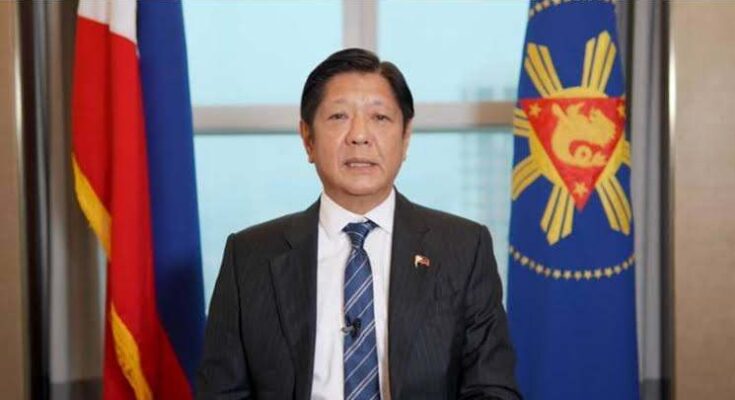FILIPINOS must continue supporting the Marcos administration and work hand in hand toward a future of peace, progress and prosperity for the country.
President Ferdinand R. Marcos Jr.’s trilateral meeting with United States President Joe Biden and Japanese Prime Minister Fumio Kishida in Washington, D.C. outcome of the trilateral meeting holds immense importance for the Filipino people, the economy and national interest, particularly in the context of the West Philippine Sea (WPS) issues.
“On behalf of the entire House of Representatives, I extend my warmest congratulations to President Marcos for his remarkable achievement in securing a monumental diplomatic victory through the recent historic trilateral meeting with President Biden and Prime Minister Kishida,” House Speaker Ferdinand Martin Romualdez said in a statement on Sunday.
As the Philippines navigates the challenges posed by the global pandemic and works towards full economic recovery, such partnerships are instrumental in driving sustainable growth, fostering innovation, and creating employment opportunities for our people, he addded.
He noted that the US and Japan committed to continue their support for Philippine defense modernization priorities and upgrading the capability of the Philippine Coast Guard.
“In addition, the three leaders will also conduct more combined naval training and exercises not only among the three countries but also with additional partners,” he said.
Romualdez said aside from improved defense and maritime cooperation, among the major benefits the Philippines would derive from the trilateral summit include the following:
— Launching of the Luzon Economic Corridor, which will support connectivity between Subic Bay, Clark, Manila, and Batangas by accelerating coordinated investments in high-impact infrastructure projects, including rail, ports modernization, clean energy and semiconductor supply chains and deployments, agribusiness, and civilian port upgrades at Subic Bay.
— US and Japan pledge to provide at least USD8 million for Open Radio Access Network (RAN) field trials and the Asia Open RAN Academy based in Manila, to enable future commercial deployment and an open, interoperable, secure, reliable, and trusted information communications technology ecosystem in the Philippines.
— Through the CHIPS and Science Act’s International Technology Security and Innovation Fund, the US and the Philippines will coordinate efforts to develop and expand the Philippine semiconductor workforce to strengthen the global supply chain.
— Expanded partnership on safe and secure civil-nuclear capacity building including trilateral cooperation on civilian nuclear workforce development to advance the Philippines’ civil nuclear energy program.
— Expanded trilateral cooperation on the deployment of clean energy technologies, including renewable energy projects such as solar and wind, to support energy requirements in the Philippines and help ensure a just energy transition.
Romualdez said apart from securing these commitments of cooperation from the US and Japan, President Marcos also held meetings with leading US firms, such as the Ultra Safe Nuclear Corporation (USNC) and Google, as well as top US business leaders and officials of the Japan Chamber of Commerce and Industry.
Romualdez said such engagements, held on the sidelines of the trilateral meeting, manifest President Marcos’ sustained campaign to attract more foreign investments into the country.
Philippine Ambassador to the US Jose Manuel Romualdez estimated that at least USD100 billion in investments from the US and Japan may come to the Philippines in five to 10 years as a result of the historic trilateral summit. (PNA)





